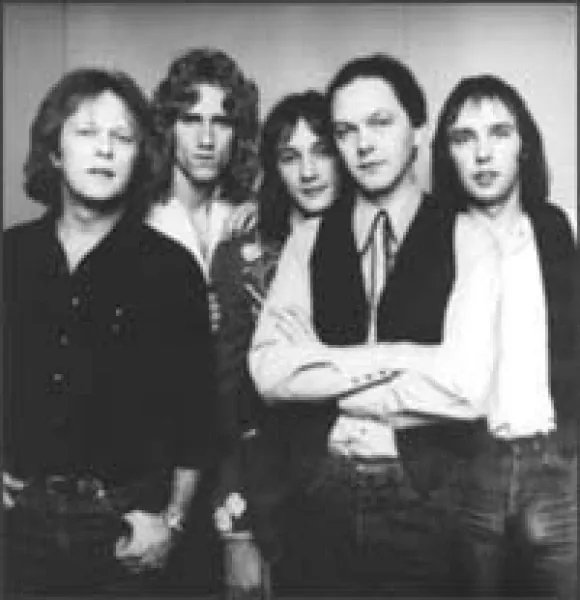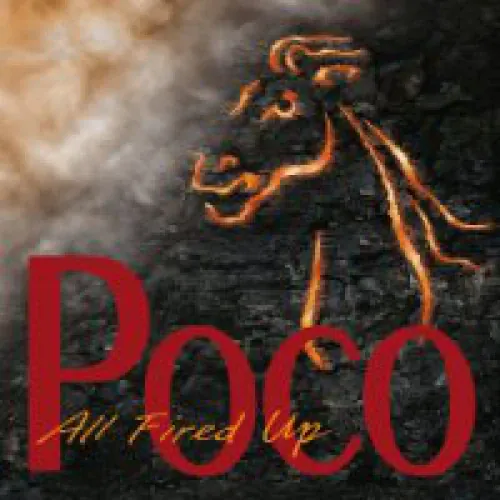
Poco
Top Poco albums
Top Poco lyrics
Poco biography
One of the first and longest-lasting country-rock groups, Poco had their roots in the dying embers of Buffalo Springfield: after co-founders Neil Young and Stephen Stills exited in the spring of 1968, only guitarist/singer Richie Furay and ba**ist Jim Messina remained to complete the group's swan song, Last Time Around. The final Springfield track, "Kind Woman," included only Furay and Messina, with a guest appearance on steel guitar by Rusty Young, formerly of Boenzee Cryque. He stuck with Furay and Messina, pa**ing on a scheduled audition for a new group that Gram Parsons was putting together; auditions followed before the fledgling group reached out to Young's ex-Boenzee Cryque bandmate George Grantham on drums and vocals and to ba**ist/singer Randy Meisner. This lineup rehearsed for four months before making their debut at the L.A. Troubadour in November. A month later, they made their first appearance at the Fillmore West on a bill with the Steve Miller Band and Sly & the Family Stone.br /br /At the time, they were using the name Pogo, but that didn't last; Walt Kelly, the creator of the comic strip Pogo, from which they'd freely admitted borrowing the name, didn't appreciate the group's choice and filed a lawsuit. Not wanting to lose all of the recognition and goodwill they'd built up locally over the previous five months, the result was a change of just one consonant, to Poco. Just one day after signing to Epic in early 1969, Meisner suddenly left the band, apparently over personality clashes; he later joined the Eagles. Recorded as a four-piece, Poco's debut, Pickin' Up the Pieces, was released in June of 1969. The group was back to being a quintet in 1970 with the addition of ba**ist Timothy B. Schmit, whose arrival coincided with the recording of their second album, Poco.br /br /It wasn't long after that Messina decided to leave, feeling that Furay had a**umed too much control over the group's sound. Before departing, he secured the services of a capable replacement member -- Paul Cotton, a onetime member of the Illinois Speed Press -- and also played on and produced their subsequent live album, Deliverin', which rose to number 26 and yielded the minor hit "C'mon." Their next album, 1971's From the Inside, was produced in Memphis by Booker T. & the M.G.'s guitarist Steve Cropper. The same lineup became the first Poco membership to last for more than one studio album; their second, A Good Feelin' to Know, was released in 1972, but by this time, even Furay had begun to lose heart over the band's lack of commercial success. br /br /The band made one renewed effort, Crazy Eyes, their most accomplished studio album to date; released late in 1973, it became their most successful work. However, just as the LP was released, Furay left the group to hook up with Chris Hillman and John David Souther to form the Souther-Hillman-Furay Band. Still, Poco continued as a quartet; their next album, Seven, released in the spring of 1974, failed to replicate the success of Crazy Eyes. The group was at a critical point in their history following the release of one more Epic album, Cantamos, which appeared in the fall of 1974 and got no higher than number 76. After parting with Epic, Poco signed with ABC Records in 1975; their first album, Head Over Heels, issued in mid-1975, surpa**ed expectations to fall just shy of the Top 40. br /br /After the album Rose of Cimarron, the group came close to splitting up in 1976, with new member Al Garth exiting in the middle of the year. Finally, in the spring of 1977, Indian Summer was released; four months later, Timothy Schmit exited the lineup to replace Meisner in the Eagles. Grantham followed him out of the band in January of 1978, eventually becoming Ricky Skaggs' drummer. The group re-formed with Charlie Harrison and Steve Chapman joining Young and Cotton; Kim Bullard, a Crosby, Stills & Nash alumnus, came in on keyboards in December of that year, and Poco was once again a quintet. All of these personnel changes seemed to have done the trick, because their next album, Legend, released late in 1978, became the best-selling LP in their history, earning a gold record in the course of rising to number 14. The accompanying single, "Crazy Love," reached number 17, far and away their biggest seller to date. It was matched by Cotton's "Heart of the Night," which got to number 20 during the summer of 1979. br /br /However, their subsequent albums -- Under the Gun, Blue and Gray, and Cowboys and Englishmen -- each performed more poorly than their predecessor; Ghost Town, issued late in 1982, peaked at an anemic number 195. Furay rejoined the group briefly in mid-1984 along with Schmit, resulting in the Inamorata album, which scarcely made any impact, and a five-year hiatus followed before the original quintet re-formed in the spring of 1989. Their comeback single, "Call It Love," hit the Top 20, accompanied by the album Legacy, which made it to number 40. Although the 1968 lineup didn't stay together, Poco was restored as a working band, touring periodically with Cotton and Young at their core. In 2002, the band released a new album, Running Horse, through their website, www.poconut.com, and The Last Roundup followed two years later on Future Edge. Bareback at Big Sky, released in 2005, found Poco with their first unplugged live album. Two more live recordings, Keep on Tryin and Alive in the Heart of the Night, followed in 2006. ~ Bruce Eder, All Music Guide

